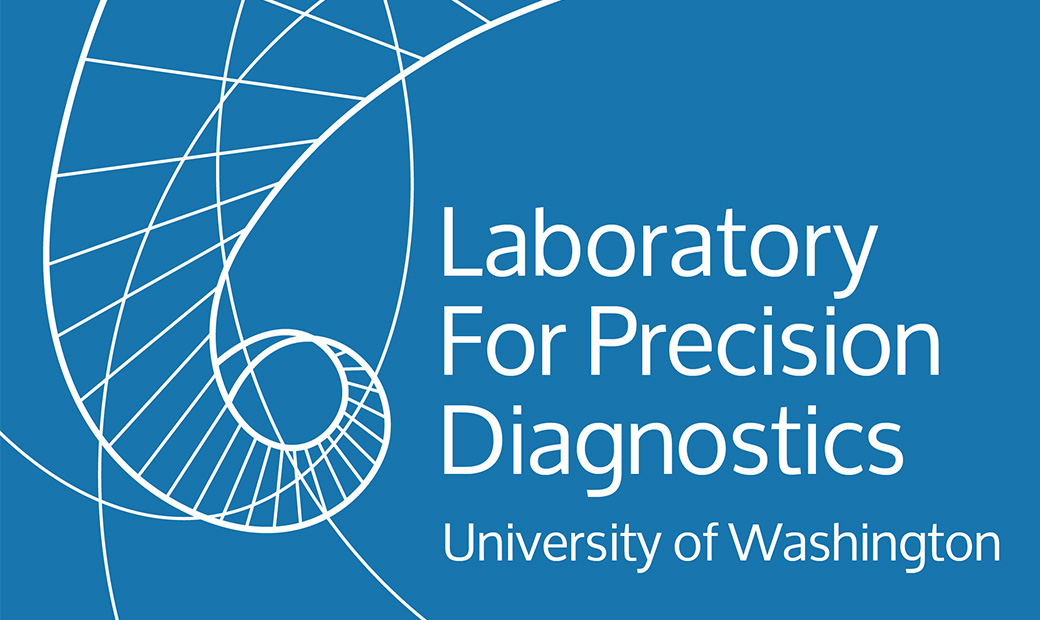Exome and Exome Panel test updates
We are pleased to announce that all UW exome tests are now performed on a genome backbone and include testing for copy number variants (CNVs) as well as optional mitochondrial genome sequencing analysis.
Exome analysis targets protein coding genes and other clinically relevant regions of the genome. Targeted regions include the following with 50 bp flanks on each side:
• RefSeq Curated and GENCODE (incl. Ensembl) transcripts
• 5’ UTR and 3’ UTR region for protein coding genes
• OMIM disease-related RNA genes
• All ClinVar Pathogenic/LP variants regions (version Dec. 2022)
• Promoter regions (EPDnew human version 006)
• All microRNA genes
• Full mitochondrial genome
Validated variant types include SNVs/indels <50bp, CNVs >1kb, regions of homozygosity >3Mb, some types of UPD, and mitochondrial variants, all provided in a single report.
All next generation sequencing (NGS) panels and panels on demand (EXPNL test code) also now include CNV detection for the genes within the panel.
Insurance pre-authorization assistance provided.
Clinical Genomics Lab updates method used to test for familial variants
The University of Washington Clinical Genomics Lab (CGL) is changing the method offered for targeted testing for small genomic copy number variants (CNVs – deletions and duplications). The droplet digital PCR test has been discontinued, and the CGL will instead use constitutional microarray analysis (CMA). Like with ddPCR, CMA, Familial Variant can be used to (1) test a person for a CNV found previously in a family member or (2) clarify the size and gene content of a CNV found previously in a person by a different test method, such as FISH, MLPA, or a gene panel. A copy of the prior test results must be provided if the original test wasn’t done by CGL.
The CMA-Familial Variant test uses the same microarray platform as the genome-wide CMA that the CGL offers, so the difference is in analysis and reporting. When CMA, Familial Variant is ordered, only the region of the specified copy number variant is analyzed and reported on. No other regions of the genome are evaluated.
Like with ddPCR, specialists in the UW Department of Lab Medicine and Pathology are happy to handle pre-authorization for CMA, Familial Variant on behalf of ordering providers. Also like ddPCR, the list price for CMA, Familial Variant is lower than genome-wide CMA.
COVID-19 Update: Laboratory OPEN
We are not anticipating any closure of our laboratory at this time. We will continue to accept samples for testing, inquiries by phone and email, and will issue results as available. Thank you.
DEL/DUP STUDIES INCLUDED WITH ALL SEQUENCING AT NO EXTRA CHARGE
CDL tests for gene panels and single genes now include both sequence analysis and deletion/duplication analysis by next-generation sequencing (NGS) technology. There will be no extra charge for del/dup analysis, and the prices currently shown for sequence analysis apply.
Splicing analysis clinically available
It is now clear that missense and synonymous variants within exons and some intronic variants can affect pre-mRNA splicing. While predictive programs can identify alterations in splice enhancers and suppressors and creation or deletion of recognition sequences, they are poor at determining if they are used. Additionally, it is difficult to determine the splice outcomes of variants identified by genomic sequencing. The CDL now offers mRNA splicing studies of genes that are included in our test menu and are expressed in dermal fibroblasts.
Stickler syndrome testing now available through CDL
The Collagen Diagnostic Laboratory is pleased to announce new testing for Stickler syndrome, a connective tissue disorder involving collagen types II, IX, and XII. The CDL offers a 6 gene panel to test for Stickler syndrome. Please see the Stickler Syndrome Test Page for more information.
New billing information on Test Requisition Form
The billing portion of the CDL and NCGL laboratory test requisition forms has been revised to include patient consent when billing insurance. A patient signature is now required for all insurance billing. Additional security features have also been added to protect credit card information. Please see the CDL Billing Page or NCGL Billing Page for details!
Clinical Genomics Laboratory launches FusionPlex® Panel
Solid tumors (e.g. sarcomas, lung cancers, thyroid cancers, head and neck cancers, renal cell carcinomas, mammary gland tumors, prostate cancers, brain tumors) frequently have chromosome rearrangements and gene fusions that are important in establishing a diagnosis, predicting prognosis, and guiding therapy choices. The CGL now offers FusionPlex®, which is based on next generation sequencing of RNA (cDNA) from solid tumor tissue to detect somatic oncogenic gene fusions involving any of 100 genes associated with solid tumors, without prior knowledge of the fusion partners or the breakpoints of the translocations. More details can be found HERE.
5 New NGS Panels from the Collagen Diagnostic Laboratory
The CDL is pleased to announce the addition of five new NextGen panels, including our most comprehensive panel for Osteogenesis Imperfecta to date, the 30-gene OI and Genetic Bone Disorders Panel. The CDL offers new testing for Osteopetrosis, Cutis Laxa, Ectopia lentis, and Complex EDS-like Disorders. As always, the CDL is committed to providing the most comprehensive analysis, interpretation and follow-up of these genes and all genes involved in inherited disorders of connective tissue.
Dr. Peter Byers To Speak At Upcoming ACMG Annual Meeting
 Dr. Peter Byers, Director of the UW Medicine Center for Precision Diagnostics, will be presenting at the upcoming ACMG Annual Clinical Genetics Meeting in Phoenix, Arizona.
Dr. Peter Byers, Director of the UW Medicine Center for Precision Diagnostics, will be presenting at the upcoming ACMG Annual Clinical Genetics Meeting in Phoenix, Arizona.
Topic: What Every Clinical Geneticist Should Know About Testing for Osteogenesis Imperfecta in Suspected Child Abuse Cases
Date: Friday, March 24, 2017
Time: 1:40 PM – 2:00 PM
Location: Phoenix Convention Center
Room: North Ballroom BC
For more information, please visit the conference page HERE
Each year in the UW some 25,000 children between the ages of birth and 3years are abused in ways that result in fractures. In that same age group are about 1200 infants and children with osteogenesis imperfecta (OI) and a smaller number with other genetic predispositions to bone fragility and fracture. The presentation of fracture in children with OI may mimic that of children who have been abused in that multiple unexplained fractures can be present and baffle both the parents and the clinicians as to their origin. More than 90% of individuals with OI have mutations in the type I collagen genes (COL1A1 and COL1A2) and all but a handful of the rest have mutations in any of an additional 15 genes. Mutations in all these genes can now be reliably identified by genetic sequence analysis, which has completely supplanted analysis of proteins produced by cultured fibroblasts for diagnosis. The decision of which children to study in the context of concerns about abuse is difficult and even the most stringent procedures to screen out children with OI still leaves questions in a small number among whom about 5% have genetic and biochemical evidence of OI upon testing. In that context the failure to find a causative genetic alteration, .however, dramatically lowers the likelihood that a child has OI and facilitates further assessment of the family.
#ACMGMTG17
Testing for Periodontal Ehlers-Danlos Syndrome
The Center for Precision Diagnostics, Collagen Diagnostic Laboratory is pleased to announce that genetic testing for Ehlers-Danlos syndrome (EDS) periodontal type is now available individually and through our new Comprehensive EDS Panel. The testing for EDS periodontal type (also known as EDS type VIII) includes genomic sequence analysis of C1S and C1R. Researchers in our group recently described pathogenic variants in these two genes as the underlying cause of EDS VIII. This autosomal dominant disorder is characterized by early-onset periodontitis and tooth loss.
The genetic cause of periodontal Ehlers-Danlos syndrome (EDS type VIII) found by UWCPD researchers
The Center for Precision Diagnostics researchers, in collaboration with Austrian, Swedish and UK geneticists, recently identified that the cause of the periodontal form of Ehlers-Danlos syndrome (EDS type VIII) results from a mutation in one of an unexpected pair of genes, C1S or C1R. Both genes dictate the synthesis of complement, a protein that plays a role in fighting infection and moving foreign cells out the cell. Most other forms of EDS are caused by sequence variants in collagen proteins. A C1S or C1R gene sequence abnormality leads to a dominant form of EDS type VIII , causing aggressive periodontitis and tooth loss at a young age. The surprising discovery accomplished by exome sequencing research is opening the door to learn how the disease progresses, a necessary step for considering treatment. Read the details of the research in the American Journal of Human Genetics.
Insurance Pre-Authorization Service
The CPDx recognizes that obtaining insurance pre-authorization for genetic testing may be challenging and time consuming. We are happy to assist clients in obtaining prior authorizations to determine whether genetic testing will be a covered service under the patient’s plan. Contact our pre-authorization specialists at genepre-auth@uw.edu with any questions.
Byers & Pepin Present At EDS Symposium
Center for Precision Diagnostics laboratory director, Dr. Peter Byers and genetic counselor, Melanie Pepin recently attended the Ehlers-Danlos Society (EDS) International Symposium 2016 in New York City (May 3-6, 2016). Invited members of the EDS medical community and interested affected individuals and family members from around the world gathered to update and expand present clinical diagnostic categories and nomenclature for the many forms of EDS. Both Dr. Byers and Melanie presented clinical data gathered from research participants in the Collagen Diagnostic Research Repository.
